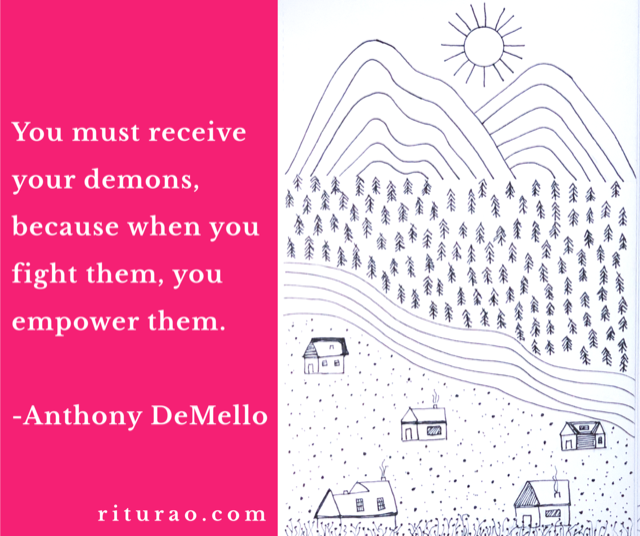
I’m not afraid of heights. But standing at the edge of a towering cliff would give anyone pause.
You can see the sheer drop from where you stand. The thrill, the beauty of all you see from this high, and a sense of possibility can fill one with enormous hope. Dreams and desires feel just within reach. You drink this in deeply, and in that moment get a taste of life at its fullest.
That’s the romantic version, anyway.
If you’re afraid of heights, all you taste is fear. Your heart pounds, you’re drenched in sweat, and a tsunami of panic (and perhaps some bodily fluids) begins to swirl. Your mind goes into primal overdrive. Beauty? Possibilities? No. You just want to get the hell out of there.
Both scenarios represent how we tend to approach decisions, particularly the important ones. Sometimes, it’s the drama we’ve stirred up in our head that piles on the tension; other times we indulge in a heavy, over-sweet dose of naivete.
The result: either we find ourselves trying to muster up courage and boldness, or have trouble thinking straight so we take the quickest, easiest, most convenient way off that damn cliff.
What these scenarios have in common is basing our next steps on intense emotion. Facts, logic, reality and rationality barely make an appearance.
Sure, from the outside these reactions seem a bit ridiculous, but in the throes of a challenging situation we often let intense emotional reactions, like despair, anger or wishful thinking take charge. This clouds our thinking. Instead of trying to calmly understand and solve our problems, we make decisions at emotional gunpoint.
You don’t end up on a cliff overnight. It took time to get there, and most likely, you weren’t paying attention along the way. You just kept walking, and didn’t notice where you were heading until you came to the edge. This is how you end up with habits and behaviors that blunt your potential and hurt or hold you back.
You took steps to get to the cliff, and you can take steps to get off the cliff.
Author Anthony DeMello said you must “receive” your demons, because when you fight them, you empower them. The only way out is through.
No drama, no romanticism. Just small, consistent steps in the right direction and with purpose. You persevere through the rough parts, accepting that there will be rough parts, and move through anyway. You seek and accept help when needed, learning as you go, and pick yourself up after you fall.
You can step away from the cliff, and navigate a path that leads you to a better destination. The cliff may be in view, but you won’t be teetering over the edge.
Big problems rarely require big, dramatic responses. It is less obvious but more significant to note that most people find their way—their true way—after a long journey of small steps.
Leave a Reply